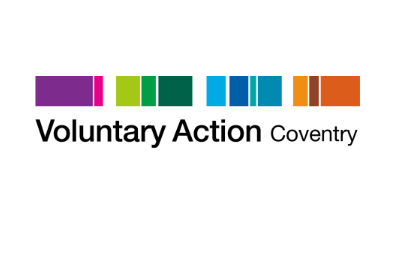Careers Education, Information, Advice and Guidance (CEIAG)
Careers education and guidance helps students gain the knowledge and skills needed for their future career choices and gives them the information they will need to get there.
All students are entitled to, and will receive, careers education and guidance and support during their education at Bishop Ullathorne School. Our careers education programme enables students to develop their careers knowledge, career planning and employability skills. It also offers information and advice that is personalised, comprehensive and impartial.
Career contacts:
Mrs P Casey – Assistant Headteacher, Careers Leader
patricia.casey@hccmac.co.uk 02476414515
Ms Chinyere Nnaukwu-Kalu Nkwocha - Careers Advisor
chinyere.nnaukwu-kalunkwocha@hccmac.co.uk 02476414515
Our Careers Room is situated on the ground floor of our Sixth Form Block and parents/carers are able to contact us to discuss courses or careers that are of interest to their son or daughter.
Our Careers Adviser is present at our Year 9 Option Information Evening, Year 10 Post 16 Options Evening, Year 11 Parents Evening, Year 11 into 12 Information Evening and our Year 13 UCAS Evening.
Evaluation and review
Our CPSHE Coordinator, Careers Leader and Careers Adviser meet regularly to discuss and review our careers programme in school.
Our Careers Adviser will seek evaluation from students, parents and visitors participating in organised careers events and guidance interviews. They will use the feedback to make any changes or revise any aspects of our careers delivery in school.
Date of next review: Spring 2026
Statutory Requirement ‘Baker Clause’
Government guidance states that from 2 January 2018 every school has a duty to ensure that there is an opportunity for a range of education and training providers to access students in years 8 to 13 for the purposes of informing them about approved technical education qualifications and apprenticeships.
Student entitlement
All students at Bishop Ullathorne School are entitled to:
- Find out about technical education qualifications and apprenticeship opportunities, as part of our careers programme which provides information on the full range of education and training options available.
- Hear from a range of local providers about the opportunities they offer, including technical qualifications and apprenticeships.
- Understand how to make applications for the full range of academic and technical courses
Provider Access Legislation
Our provider access policy which meets the January 2023 new legislation can be found in our careers policy.
Provider access requests
A provider/organisation wishing to request access should contact Mrs P Casey, Careers Leader.
Mrs P Casey – Assistant Headteacher, Careers Leader
patricia.casey@hccmac.co.uk 02476414515
Ms Chinyere Nnaukwu-Kalu Nkwocha - Careers Advisor
chinyere.nnaukwu-kalunkwocha@hccmac.co.uk
Good Career Guidance
The Gatsby Benchmarks (for schools and colleges) are:
1. A stable careers programme
Every school and college should have an embedded programme of career education and guidance that is known and understood by pupils, parents, teachers and employers.
2. Learning from labour market information
Every pupil and their parents, should have access to good-quality information about future study options and labour market opportunities. They will need the support of an informed adviser to make best use of available information.
3. Addressing the needs of each pupil
Pupils have different career guidance needs at different stages. Opportunities for advice and support need to be tailored to the needs of each pupil. A school’s careers programme should embed equality and diversity considerations throughout.
4. Linking curriculum learning to careers
All teachers should link curriculum learning with careers. For example, STEM subject teachers should highlight the relevance of STEM subjects for a wide range of future career paths.
5. Encounters with employers and employees
Every pupil should have multiple opportunities to learn from employers about work, employment and the skills that are valued in the workplace. This can be through a range of enrichment activities including visiting speakers, mentoring and enterprise schemes.
6. Experience of workplaces
Every pupil should have first-hand experiences of the workplace through work visits, work shadowing and/or work experience to help their exploration of career opportunities, and expand their networks.
7. Encounters with further and higher education
All pupils should understand the full range of learning opportunities that are available to them. This includes both academic and vocational routes and learning in schools, colleges, universities and in the workplace.
8. Personal Guidance
Every pupil should have opportunities for guidance interviews with a careers adviser, who could be internal (a member of school staff) or external, provided they are trained to an appropriate level. These should be available whenever significant study or career choices are being made. They should be expected for all pupils but should be timed to meet their individual needs.
Careerometer can be used to explore and compare key information about occupations, help you learn about different occupations and identify potential careers. It provides access to a selection of UK headline data relating to pay, weekly hours of work and future employment prospects for different occupations, as well as description of the occupation. Simply type in the title of the job you are interested in and the widget provides a series of options from which you can select the most relevant to you. You can then look up another two occupations and compare. You can also select ‘display the UK average’ and compare the information with the occupation you have selected.
Skillsometer can help you discover what jobs you might like to do in the future. You will be presented with a series of statements. Select the emoji shows how you feel about each statement. You will then be given suggestions of jobs linked to what you most enjoy doing. For each job, you will be presented with some headline UK data.
6 Killer Questions To Help You Choose Your Ideal Career Path
When you are feeling confused about which career path to take, it is often because you are asking yourself the wrong question. Good questions can be very powerful when used in the right context and at the right time. They can open your mind to areas you have never considered and can cut through the barriers that stop you moving from where you are to where you want to be.
If you are a parent, you could do worse than drop some of these questions into your conversations with your son or daughter. And guess what, they are fun and non-confrontational. This means that you won’t be starting World War 3 when you approach the topic of “next career steps” with your child!
If you could redesign any of your favourite subjects, what would you do more of?
This is a great question, especially if you are planning to go to university and you are not sure what degree subject to research. It will help you to identify and isolate those topics that really grabbed your interest. For example, you may prefer human geography over physical, or human biology over plans and animals. You could even break it down further to a more specific interest such as the brain function.
What problem (in your community or even the world!) would you like to help solve?
If you think about it, all jobs are related to solving a problem. This could be the problem of how to transport an individual from one side of the world to another, or managing the finances of a business. Rather than the standard “what do I want to do when I grow up?” identifying a problem you want to help solve can not only lead you to your ideal job field, but also your passion, a vital ingredient in job satisfaction.
If you could do someone else’s job for a week, what would you do?
This is all about your ideal work experience placement. It does not have to be someone you know. It could be a job you happen to be aware of, or curious about. By answering this question, you are not committing yourself to this path, but at least it gives you something to investigate further.
You are going on a long haul flight and you are running late. You dash into W H Smiths to buy a magazine or two. What would you buy?
This is all about identifying what you have an interest in i.e. you are actually choosing to spend your spare time delving into this topic. What does your answer to this question say about you? Think outside the box. If your topic is sport, this does not mean that you should commit to becoming a professional sports person. However, it could suggest that you may be interested in working within the sports industry, but in a role related to another interest such as finance, marketing or journalism.
If all jobs paid the same, what would you do?
Answering this question takes away the attraction to job roles based on prestige or high salary. There are plenty of people in well paid and prestigious roles who are unhappy in their work, so there is no guarantee that they will make you happy. It all comes down to your values. Your answer may not mean that you should be a marine biologist swimming with dolphins, but it will tell you what you feel is really important to you.
What would you do if you knew you couldn’t fail?
Quite often we dismiss job ideas because of our limiting beliefs. Do any of these sound familiar? “I’m not clever enough”, “People like me don’t do jobs like that”, “They will all laugh at me” or “My parents won’t approve”. Sometimes you might not even allow the idea to settle in your mind and you dismiss it so quickly that you forget that you even had the idea in the first place. This questions allows you to dream. Many great careers have been launched as a result of a crazy dream.
The follow up question to all of the questions above is “How can I find out more?”
Here are some actions you can take to answer this question:
-
Speak to your Careers Adviser
-
Research your job idea – use JED as a starting point and follow the links
-
Complete the big quiz on JED to find out how well suited you are to a range of jobs including the ones you have in mind. Then discuss your report with your Careers Adviser.
-
Find someone who works in the sector and ask them questions
-
Arrange work experience related to this work
Mark Anderson – Kickstart Careers Coaching
10 Reasons why WORK EXPERIENCE is a good idea…………..
A way of exploring jobs to find out what you think……
Best way to get a sense of your chosen industry
Work experience shows you are motivated about your chosen career
If you don’t know what you want to do, it can help you decide
You can see what skills are required in the work place
You will find out about your strengths and your weaknesses
It’s all about networking – you can make useful contacts
Work experience = more success in job hunting
You can put it on your CV!
You might land a job as a result!
Apprenticeships
College Courses
University Research

Match your A levels to degrees or take the Spartan to get your own personalised career cloud
Employment






